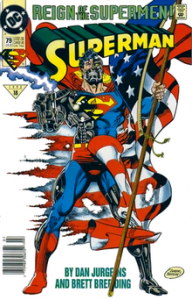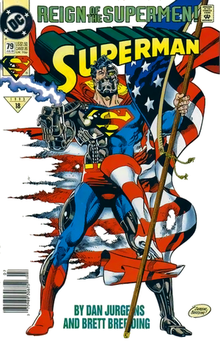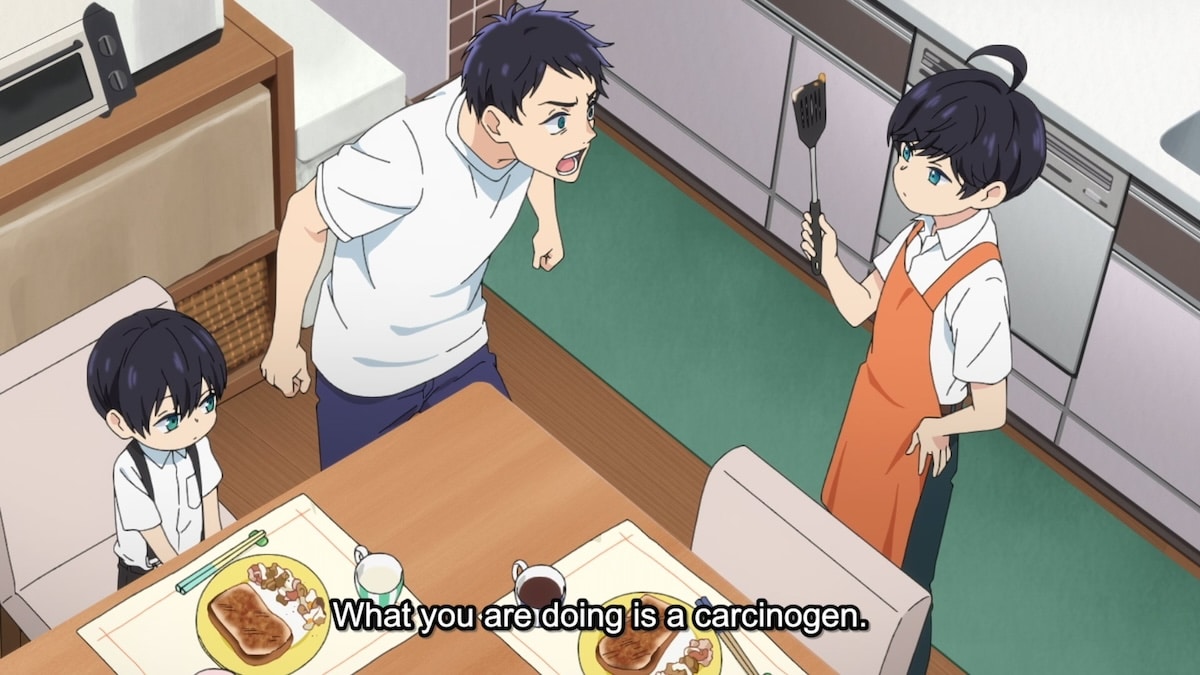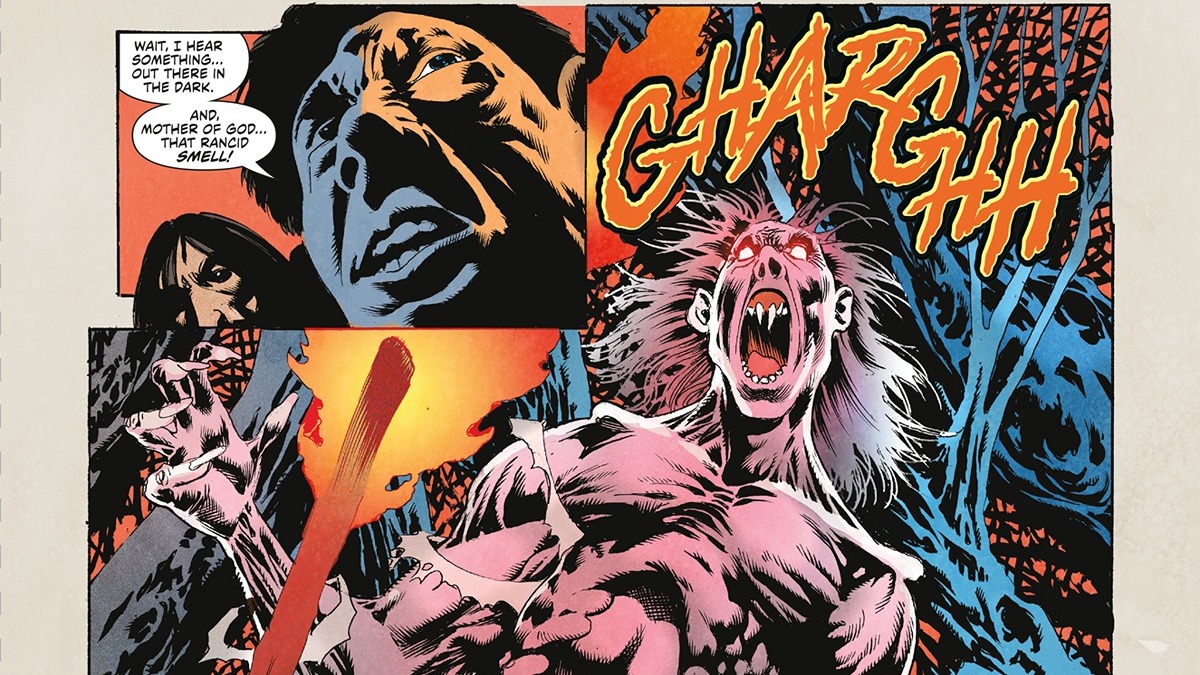
The Court GRANTS DC’s motion for summary judgment on DC’s fourth counterclaim and holds that the October 19, 2001 agreement remains enforceable and operated itself to transfer the Siegels Superman rights to DC. This ends this Court’s involvement in the parties’ dispute ….
The ruling itself addresses Toberoff’s arguments for getting around the agreement and finds them wanting. The court agreed that it needed to make sure that the agreement did indeed transfer the rights, but as we discussed in my previous post the court found the matter to have been resolved by the Ninth Circuit Court of Appeals decision.
If at times it sounds as if the ruling is a bit passive aggressive about having been boxed in by the interpretations of the Ninth Circuit’s ruling, welcome to the real-world politics of the trial & appellate court divide.
The court also concludes that certain arguments were brought years later than they should have, which again is not a surprise. On page 10, we see that DC decided to use the argument that the Siegel side had failed to make a timely affirmative defense pleading, proposed in my previous post, and the judge agreed that it was correct.
The court leaves open the possibility of subsequent state-court breach of contract filings based on disputes over the performance of the settlement, but any such filing would be separate from the Superman copyright litigation now being closed.
After declaring the Superman copyright dispute to be over, the court goes on to ask for briefing on a couple additional issues that one would think have been resolved by the settlement, but the court wants to make absolutely certain before it ends the legal proceedings once and for all. The issues: the Superboy rights and the early Action #1 promotional ads.
One can expect that DC will make try to make quick work of both.
The settlement states that the Siegel family is to “transfer all of its rights in the ‘Superman’ and ‘Spectre’ properties (including ‘Superboy’)’” to DC, and DC will doubtless argue that this means what it says. Moreover, it’s not even clear that the Siegels’ claim to Superboy goes beyond any rights they might have had in it as a derivative work of Superman–in 2007 the district court vacated a previous ruling that gave the Siegels ownership of Superboy as a separate character, indicating that Superboy might instead be merely a derivative work.
As for the promotional ads, the 2008 ruling found that those belong to DC. This is why the judge had to come up with the weird ruling that the ads gave DC only the copyright in a black-and-white strongman–otherwise, the Siegels’ share of Action #1 would have given them far less.
And now, of course, that share is gone.
My condolences to the Siegel and Shuster heirs for what must be a crushing blow. The legal dispute may be all but over, but the work of Jerry, Joanne and Joe on behalf of creators’ rights will always continue to inspire.








Well, the heirs will have another opportunity in the marketplace, I suppose… when in Year XXXX, the character enters the public domain. Versus whatever DC may be publishing at the time, “From the great, great, great, great, great, great grandson of Superman’s creator comes this new, untold story…” may still have enough value to sell enough copies to make it worthwhile.
You lost this game. Play the Siegel/Shuster franchise name to an even longer one.
Really, with a now-generational property eighty years old and with names so recognizable within the marketplace, that’s really the only option you have left for a direct hand in the cookie jar.
Silly But True
The case ends as it should.
I can’t help but think the real wrench in all this is Toberoff himself.
At any rate the heirs have a legit stake in this. ..and let’s be real, Jerry and Joe created Superman in an age where the publishers did not have the creators best interest at heart to say the least. But they were young and hungry and got played like a harp. It’s not an ideal situation by any stretch.
I really feel though that the Superman character is more than lucrative enough for there to be a fair situation that recognizes the heirs claim to their own family legacy and the deal that Jerry and Joe signed with DC.
DC can take the high ground and still make money basically.
great stuff, Jeff — esp. that last paragraph.
@SBT disclaimer: NOT A LAWYER but under the conditions of the original 2001 settlement, no Siegel heir could write/produce even a PD Superman. How this could be enforced/contested/allowed is above my pay grade, but it is in the original language. Believe it or not.
@Brad Yeah, that public domain clause is a stunner. I know–or at least based on my experience feel that I can intuit–why DC’s attorneys would put that in, given the normal practice of using settlement contracts to shut down any and all speech by the party across the table from the corporation. That said, it’s one of the aspects of current settlement practice that I personally find unsettling. In this instance it’s a real freebie–DC isn’t paying them anything extra for it; the Siegels just agree to be the only people in the world who can’t do anything with Superman. In fighting for their rights they’ve lost the one thing you’d think no one could take away.
On another matter, it’s been interesting to read other accounts latch onto the court’s discussion of a possible state court action as a sign that the judge sees the state court as the way to undo the deal. In context these references to the state court have a far different valence from past instances where I’ve called attention to signals & directives being sent by a judge, which had to do with clueing parties in on where the judge himself (or in the case of the Ninth Circuit, the lower federal court) was going to take the case. Here the court is chafing at the Ninth Circuit’s reins and emphasizing that the federal case is done. Over. Finito. Can’t help ya, kids; go ask your mom.
Let’s take the crux of the Siegel argument — that DC’s alleged failure to act on the agreement back in 2002 makes the agreement void. Even if this were true–and the court, in evaluating the arguments, indicates that it’s likely not–filing a breach of contract lawsuit predicated on an action from 11 years ago is not exactly within California’s four-year statute of limitations for contract claims.
The Siegel side might try to argue that DC has been in breach for the past few years, but as the judge says during that time DC has spent millions trying to get the Siegel side to accept that the contract exists. This is where Petrocelli’s offer to pay the 20+ million dollars only helps DC. The Siegel side insisted on an accounting before accepting any cash–an the settlement IIRC allows for the Siegels to seek an accounting–but the post-appellate victory offer can be used as evidence of good faith dealing in fulfillment of the contract’s terms.
At some point there might have to be a calculus vis a vis what can be gained by future challenges. If DC is indeed cooking the books (and despite Buchwald v Paramount this can be harder to show than one might think) a challenge could yield a huge payout, but independent audits are expensive and coupled with legal fees the cost of getting more cash could be greater than the yield.
Moreover, it’s a bit of a longshot that after all this a California court would set aside the contract. There are estoppel issues, statute of limitations issues, contract law issues … this is rebel alliance flying into the Death Star territory, except this time, thanks to JJ Abrams’ experience on the Star Trek franchise, the thermal exhaust port has a deflector shield.
Brad & Jeff:
Jeez. Thanks for that tidbit — now that you guys mention it, I recall reading the clause in one of Jeff’s earlier (great) articles.
Above my pay grade too, but I don’t see how such a legal monstrosity can be binding on all future “heirs” in perpetuity. Binding on current signatories sure, but certainly no court on this planet (or any other in this hypothetical future date) will recognize an agreement between people who haven’t even been born yet that strips away said future hypothetical persons’ right at the time that Superman is in the Public Domain.
Won’t DC still own the trademarks to all those properties, even if the copyrights expire?
@letaon Yes. This is what makes exploiting material in the public domain somewhat tricky. Nostalgia time–the thing that introduced me to this tension was Disney’s action against The Uncensored Mouse. Today I bet you’d find a nonprofit or law school clinic willing to take on a corporate C&D against a book presenting public domain material bound in an all-black cover w/ no reproduction of the trademark.
@Silly but True – Contracts binding heirs and assigns have sparked some interesting legal debate & court cases, and the enforceability of such provisions is stronger than many might think. The 2001 Siegel settlement is interesting in that “Siegel Family” is an undefined term that presumably would have given a more expansive elaboration in the final long-form agreement’s heirs + assigns boilerplate. Technically, as it stands the language of the settlement refers only to the following members of the Siegel Family: Joanne, Michael, Laura and Laura’s children, all of whom receive benefits under the contract.
Comments are closed.